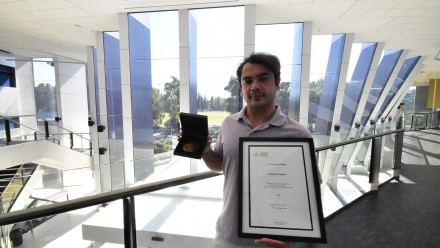When Immune responses go wrong – critical signalling pathways in lymphocytes balancing immunodeficiency and autoimmunity
Dr Elissa Deenick, Laboratory Head, Lymphocyte Signalling and Activation, Immunology Division, Garvan Institute of Medical Research.
Immune responses must be tightly controlled to ensure effective protection against pathogens whilst avoiding harm due to inappropriate responses. Human inborn errors of immunity are caused by single gene mutations that cause immune dysregulation resulting in pathologies such as susceptibility to infection, autoimmunity and/or inflammation. These conditions provide unique insights into the molecular mechanisms that control the balance between protective immune responses and immune-mediated damage. One example of such immune dysregulation is patients with mutations that affect the PI3K signalling pathway. Study of these patients, and corresponding mouse models, has revealed the critical role of this signalling pathway in regulating both protective and destructive immune responses.
Dr Deenick completed her PhD at the Centenary Institute/University of Sydney with Phil Hodgkin. She then undertook postdoctoral training with Pam Ohashi at the Ontario Cancer Institute/University of Toronto in Canada. She returned to Sydney and is now a Lab Head and member of Faculty at the Garvan Institute of Medical Research. Her interest is in how lymphocytes integrate signals to generate appropriate protective immunity while avoiding immune-mediated damage and how this goes wrong in disease. In particular, her group studies both patients with monogenic inborn errors of immunity as well as mouse models of these conditions to dissect the intracellular signaling pathways that control lymphocyte differentiation and survival.












